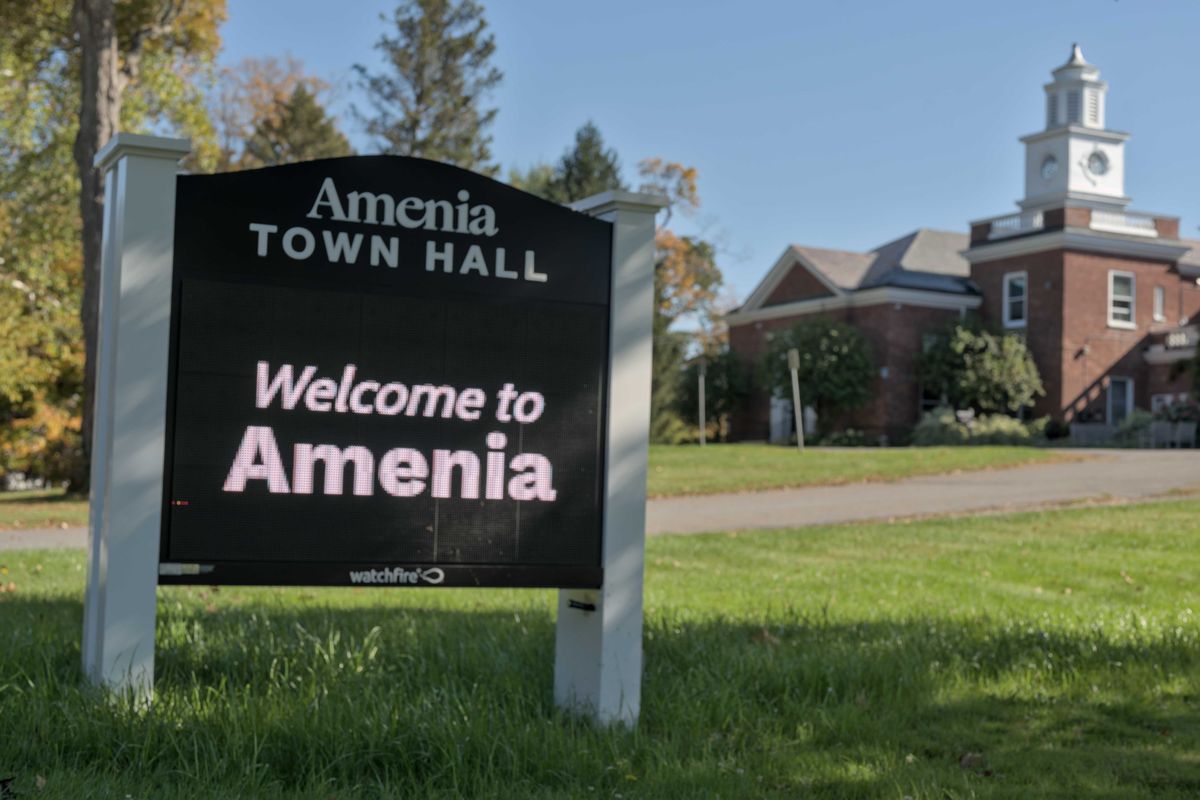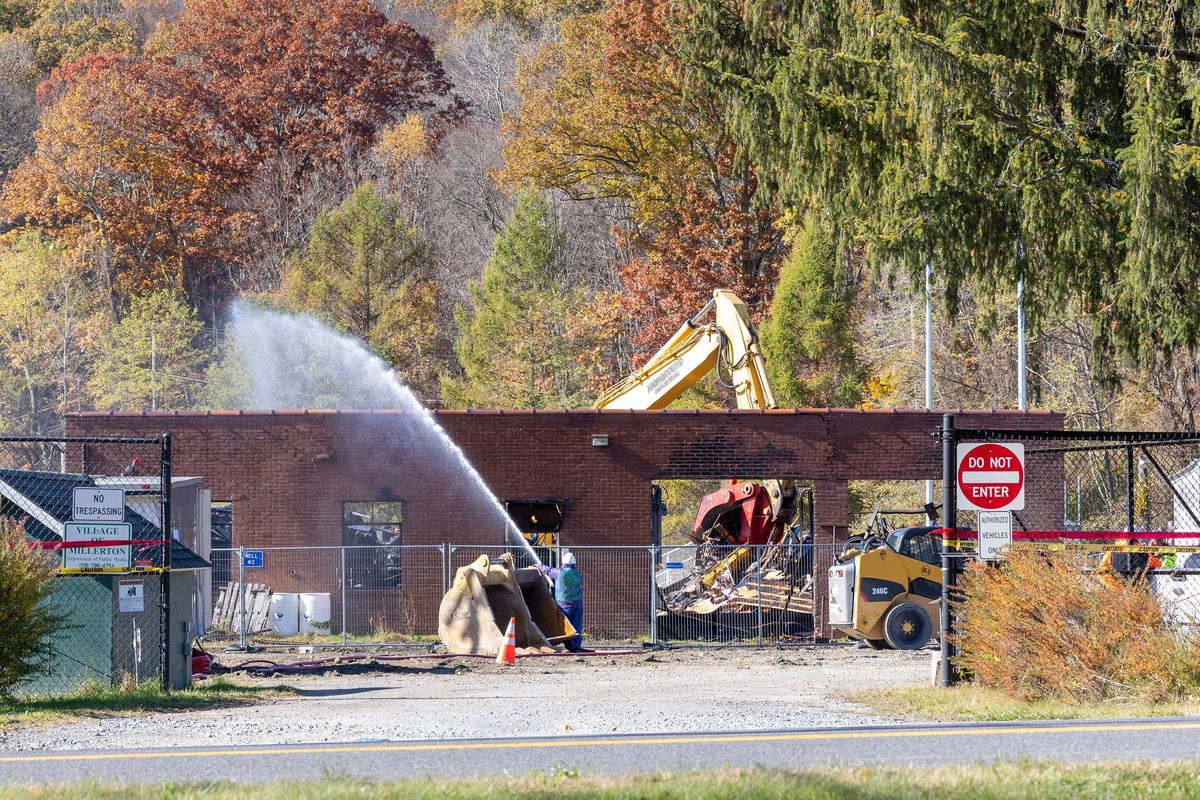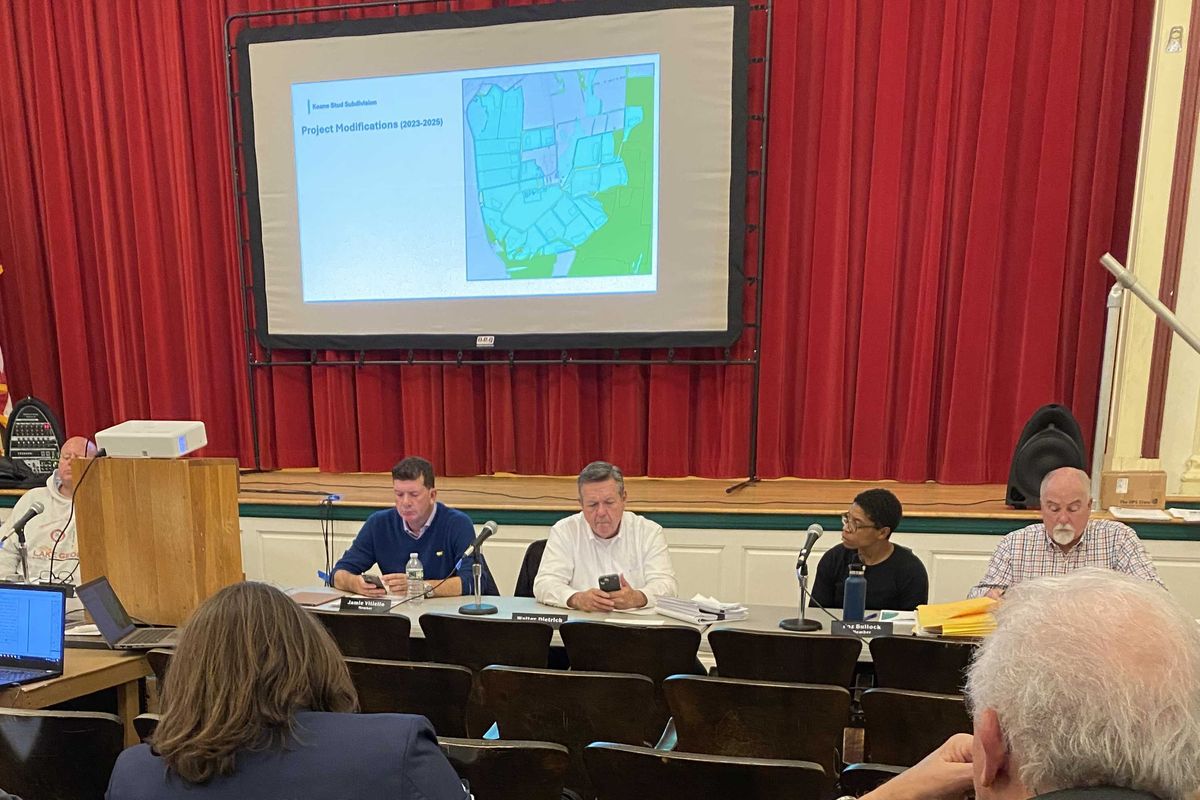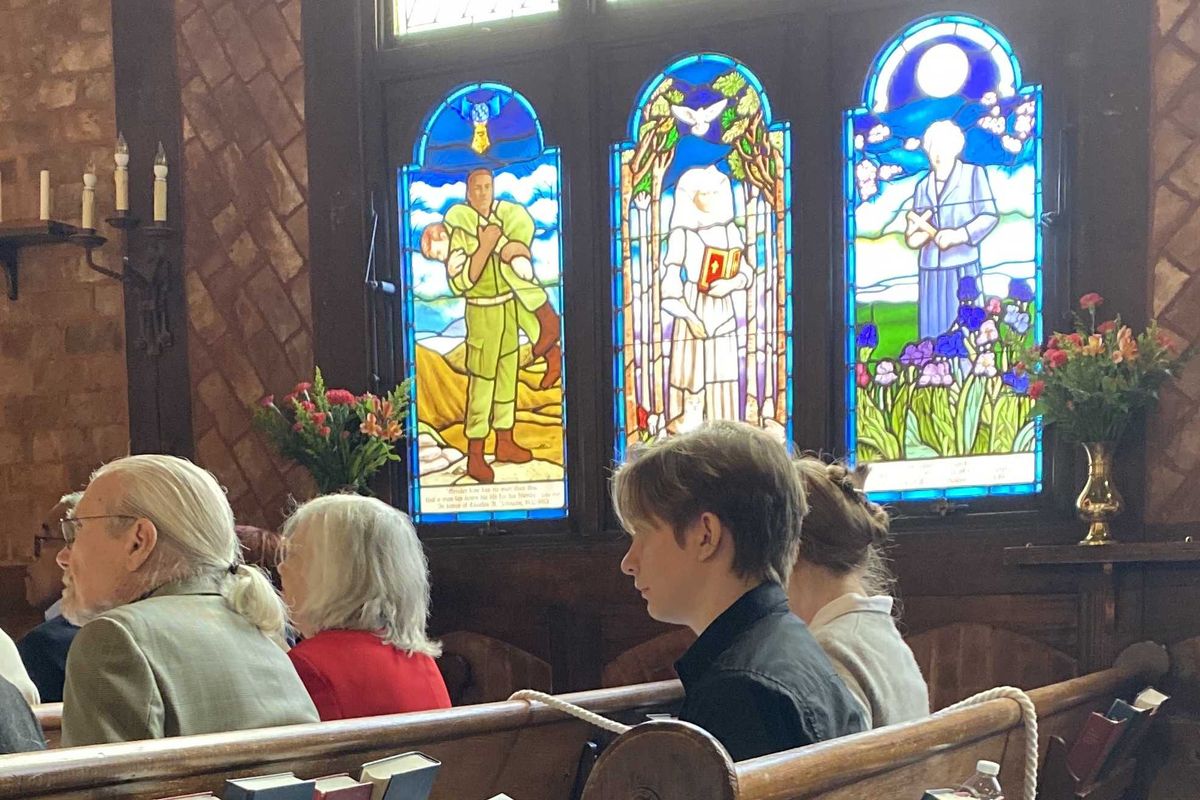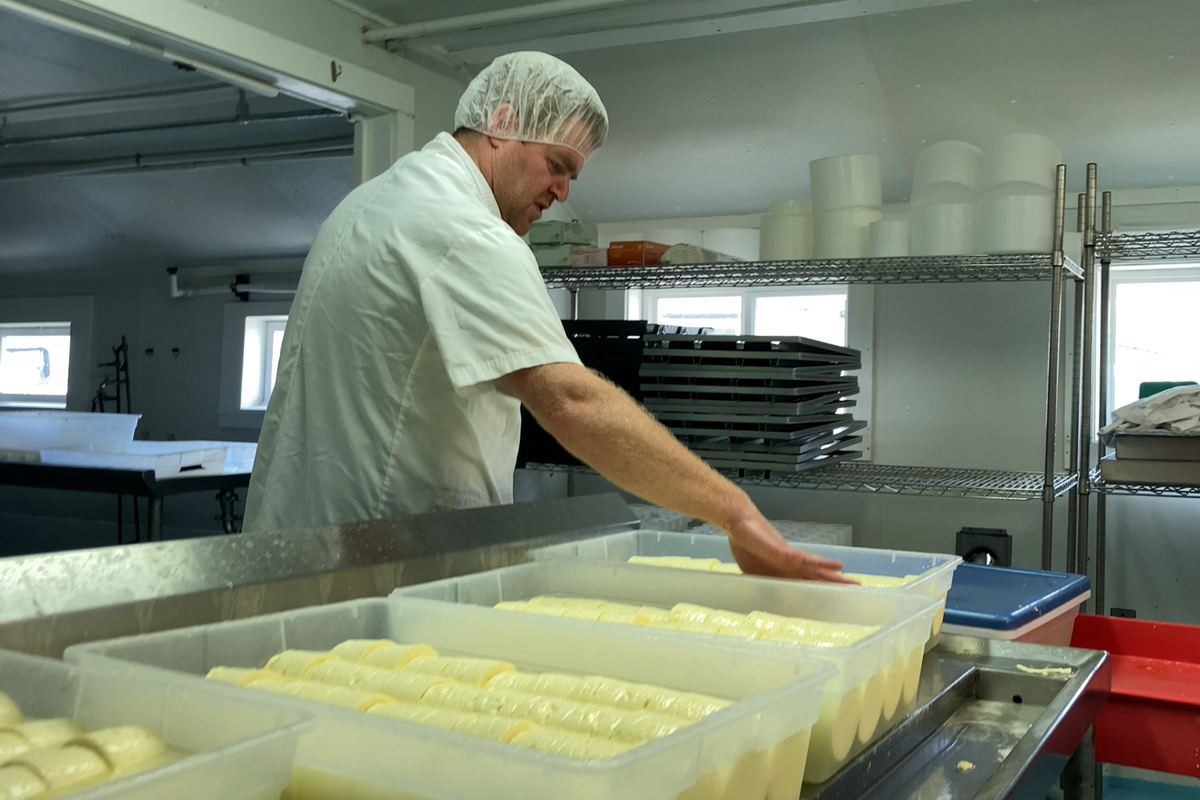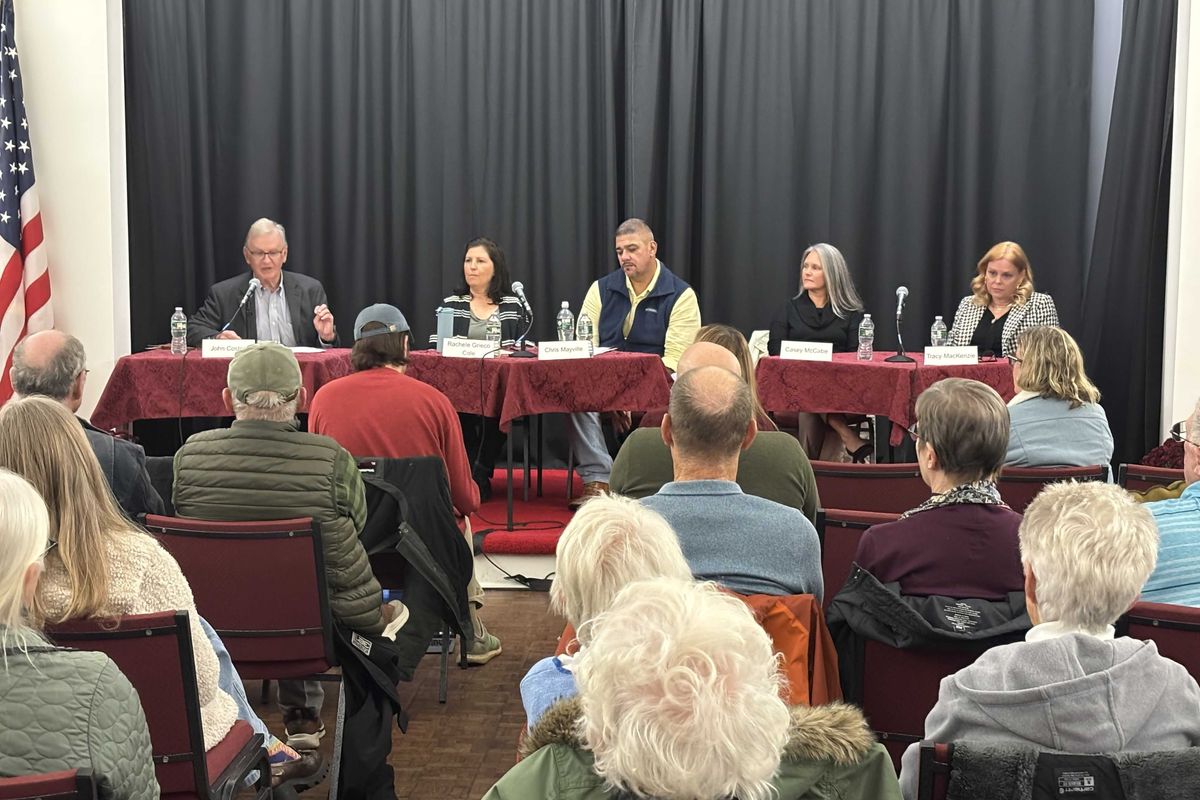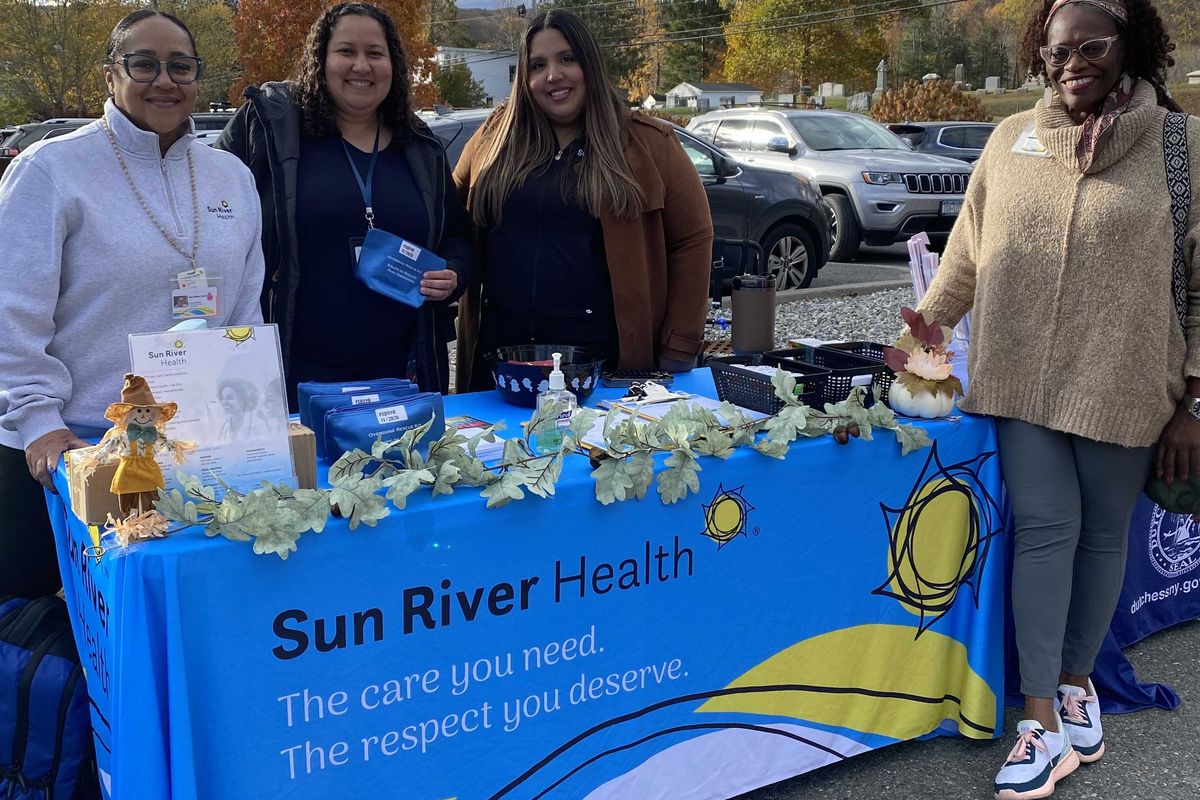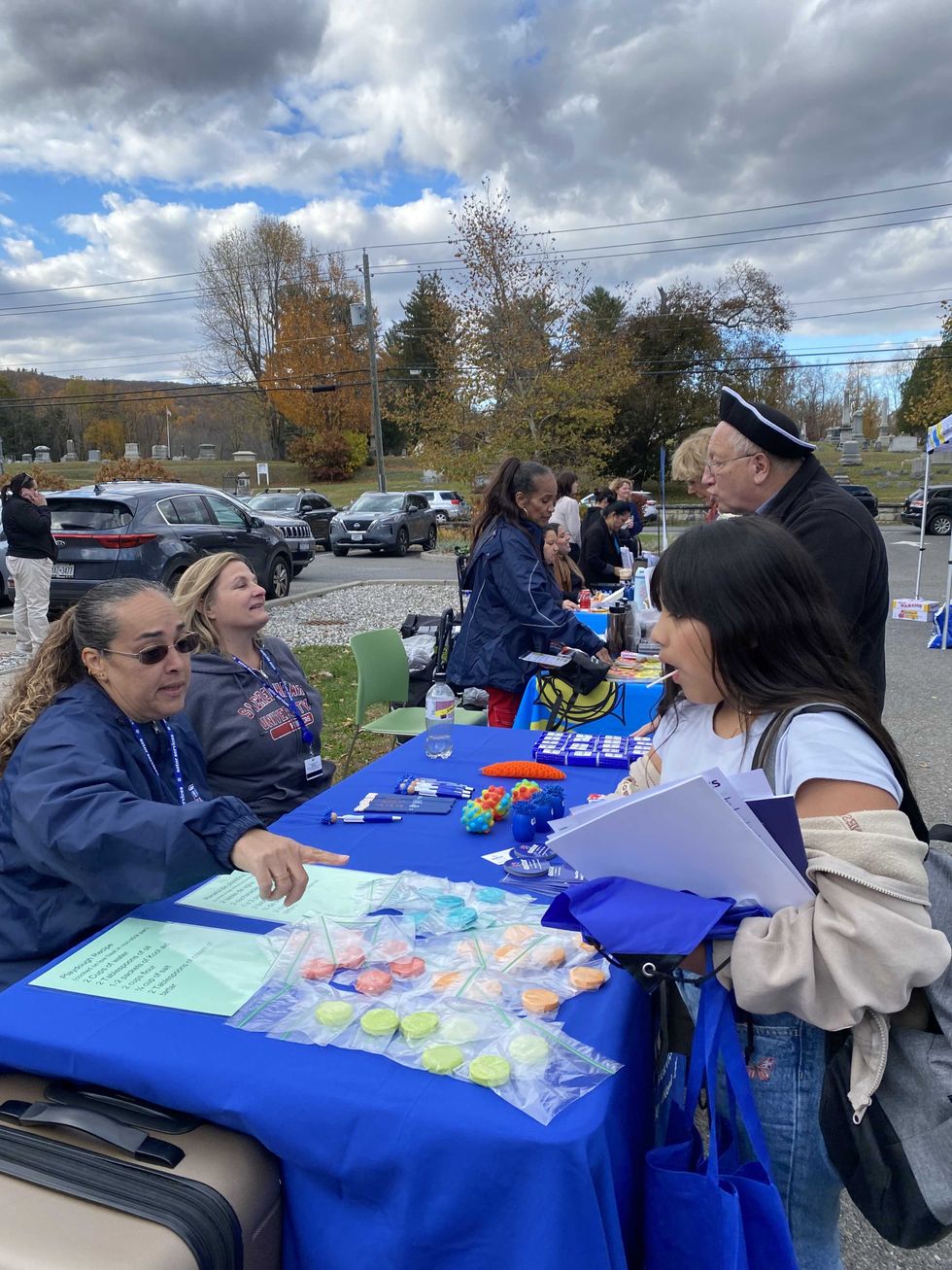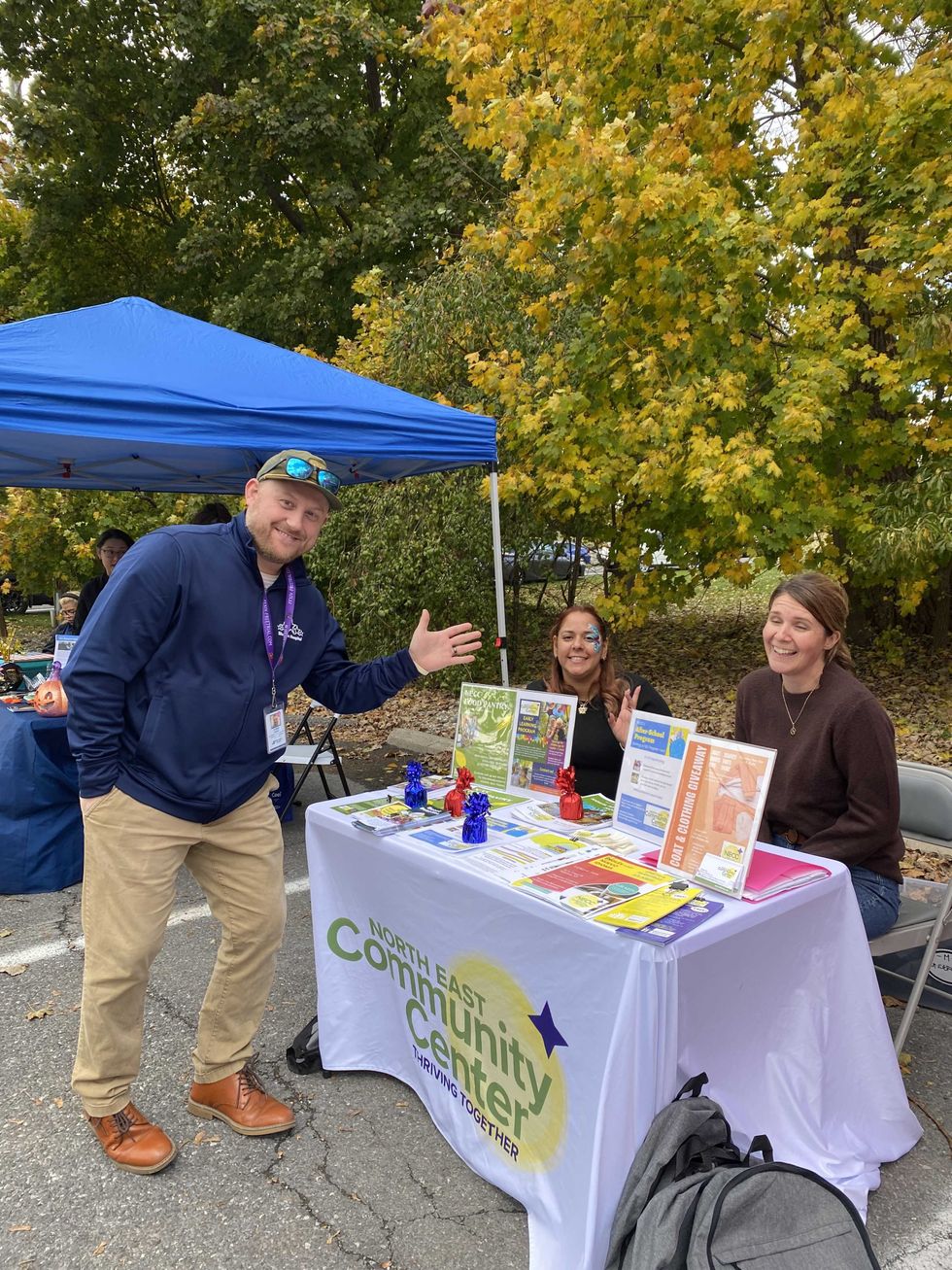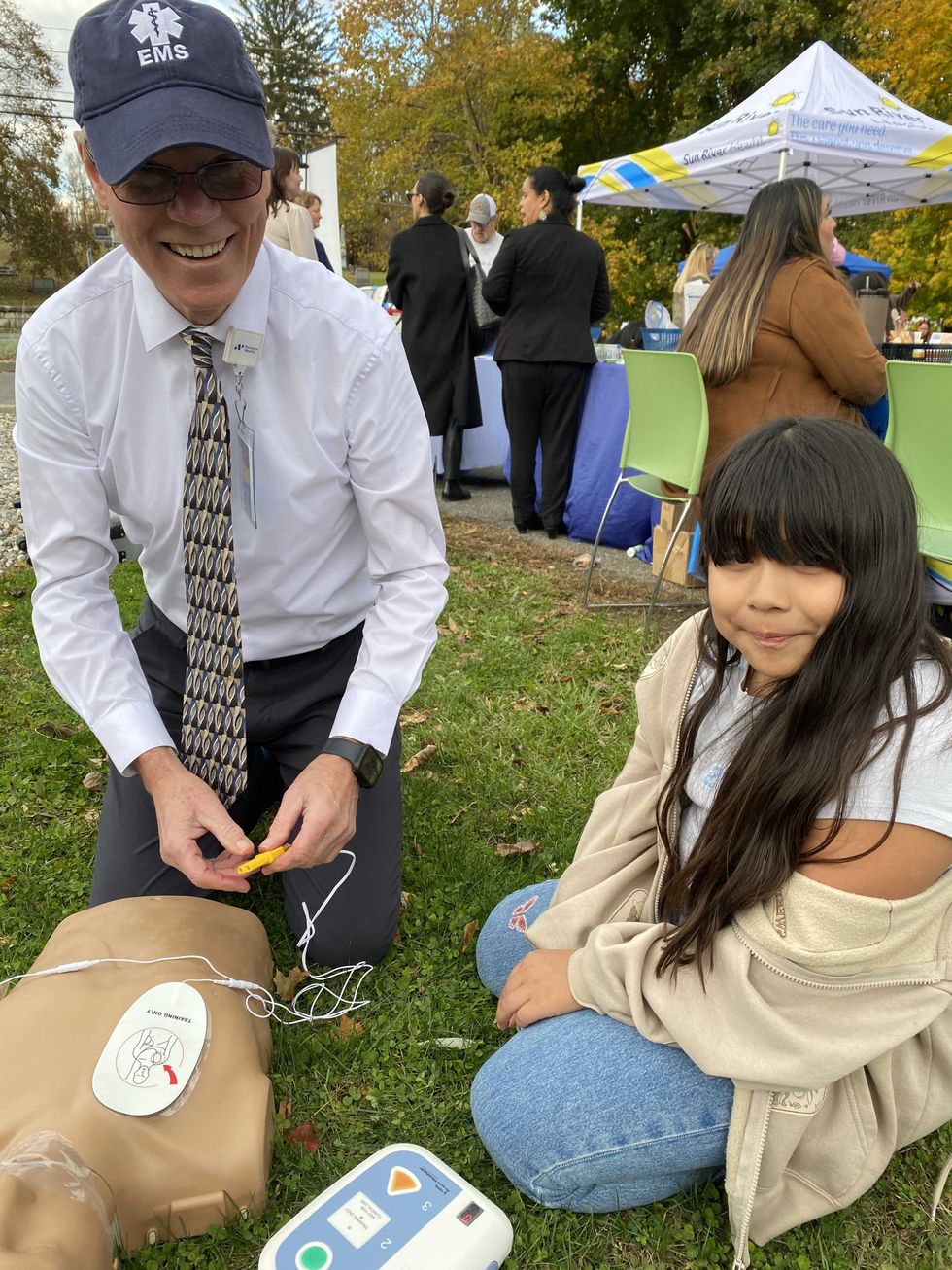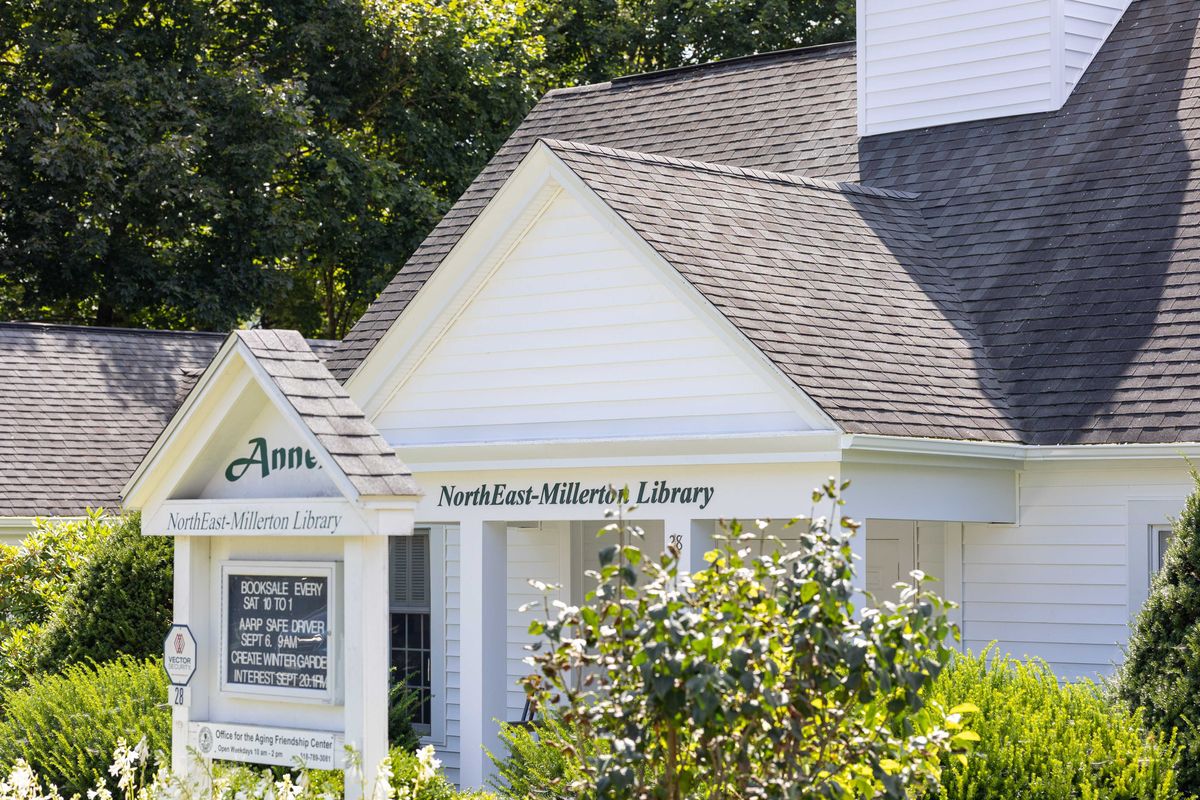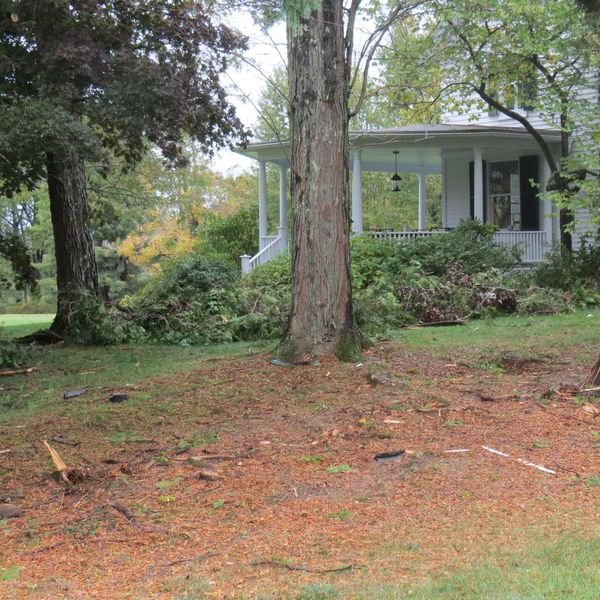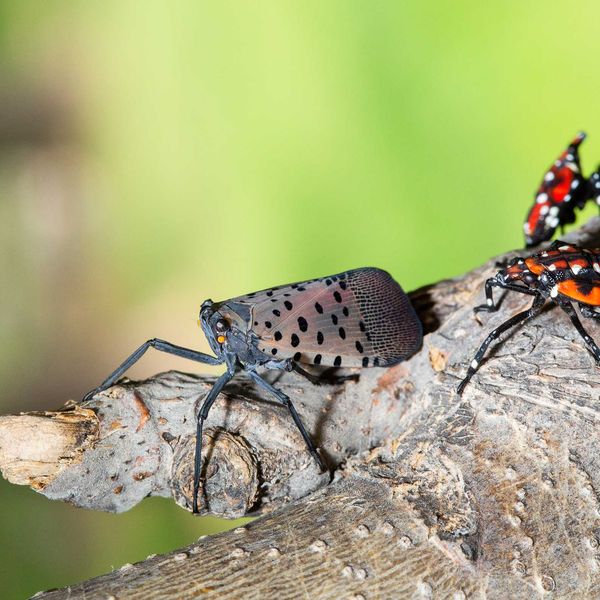Latest News
Millerton and North East residents crowded into the NorthEast-Millerton Library Annex on Friday, Oct. 24, to hear from 10 candidates seeking office.
Photo by Christian Murray
MILLERTON — A crowd of about 60 people filled the NorthEast-Millerton Library Annex for a political Q&A session with candidates for local and county offices on Friday, Oct. 24.
Panels of candidates rotated across the stage, answering questions submitted beforehand and impromptu questions from audience members in the room.
Each candidate was given four minutes to make an introductory statement and one minute each to respond.
Election Day is set for Tuesday, Nov. 4, with polls open countywide from 6 a.m. to 9 p.m. Early voting began Saturday, Oct. 25.
North East Town Board candidates Rachele Grieco-Cole and Chris Mayville, each running unopposed for a two-year term; North East Town Justice candidate Casey McCabe and Family Court Judge candidate Tracy MacKenzie took the stage first.
North East Town Board
Grieco-Cole focused on her experience in grant-writing and fundraising during her opening remarks, promising to aid the town in securing funding for crucial projects.
Mayville, who has been on the board since 2023, highlighted concerns over the rising cost of emergency medical services — and ambulance service more specifically — and said he focuses on growth and development that works with the town’s values and needs.
Millerton resident Lenny Sutton asked the board candidates for a timeline on the wastewater treatment system.
“It’s still a recognized need in town,” Mayville said. “Unfortunately, the original grant that we anticipated getting was taken back.”
Mayville said town and village officials are still pursuing the wastewater treatment project and asked moderator John Coston, the former executive editor of the Lakeville Journal and Millerton News, if Village of Millerton Mayor Jenn Najdek could offer an update from the audience.
“No,” Coston said to laughter in the room. “The Mayor’s off the hook tonight.”
A submitted question from North East resident Bill Kish centered on transparency in the town government.
“I’ve been attending North East Town Board meetings for many years, and in all that time I don’t think I can remember a meeting where the board actively discussed or debated an action they were contemplating,” Coston read on behalf of Kish. “Do you think this is the right way for government to function? If yes, why? If not, how would you change things?”
Grieco-Cole said she values robust debate and conversation, and asserted an appreciation of differing opinions.
“I’m pretty forthright and I speak my mind,” Grieco-Cole said. “And I believe in debate. I think it’s the bedrock of our democracy.”
Mayville offered a defense of his record while acknowledging he agrees with the premise of Kish’s question.
“If there’s a resolution up on the agenda and it’s not something I feel I have enough information on, or there hasn’t been — in my mind — adequate discussion, I will and have asked that that be tabled so discussion can occur,” Mayville said. “Additionally, I’ve also asked for the Town Board to consider adding an additional meeting just for that purpose.”
Town Justice and Family Court Judge
North East Town Justice candidate Casey McCabe opened by explaining her role as the town’s sitting judge and how the local court system works.
“We are the court closest to the people,” McCabe said. The town court handles misdemeanor offenses, traffic tickets, landlord/tenant disputes and small claims suits.
“We work really hard to make sure the court is accessible, it’s user-friendly,” McCabe said.
Sitting Family Court Judge Tracy MacKenzie described her work on the county-wide bench of four judges handling custody and juvenile delinquency cases.
Both MacKenzie and McCabe are running unopposed for reelection.
Questions focused on bail.
“Bail is not something we see very often,” McCabe said, explaining that misdemeanors don’t qualify for bail under New York State law. But bail is a tool, she said, that just needs to ensure people return to court at a later date.
Dutchess County Court Judge
Dutchess County Court Judge candidates Ned McLoughlin, an incumbent, and his challenger Kara Gerry took the stage second.
Gerry opened by outlining her career, beginning as a prosecutor in the Orange County District Attorney’s Office before moving briefly into private practice. She has spent the past 13 years with the Dutchess County Public Defender’s Office.
“People aren’t born criminals,” Gerry said. “Circumstances such as childhood abuse, poverty, homelessness, domestic violence, addiction, mental illness are really the driving factors that seem to push people into being charged with crimes.”
McLoughlin highlighted his 23-year career as a prosecutor in Dutchess County, saying he never lost a trial. He said he has presided over murders, burglaries, domestic abuse and other serious cases, also serving as a Supreme Court judge.
“When it comes to violence against women and children and vulnerable people, I’m known as a very strong, law-and-order judge,” McLoughlin said.
McLoughlin also mentioned addiction, saying habitual drug abuse is a disease that drives people to hurt those they love the most.
“The cases I’m really most proud of are the ones where I bring somebody in and they’re addicted,” McLoughlin said. “And I use the levers that I have to motivate them and encourage them to use an entire diner menu of programs that we have to get them past it and be able to get back to their family.”
Questions for the candidates focused on the rule of law and how they would defend the U.S. Constitution.
“A judge needs to handle every case that comes before the court with an open mind,” Gerry said. “Consider the individual, consider the background — but apply the law fairly, evenly and consistently.”
“The Bill of Rights and the criminal procedure is here to protect every one of us,” McLoughlin said. “When I see someone come into my courtroom it’s a very stressful moment for them. They’re afraid, they’re not sure what the future looks like. It’s my role to make sure they understand that they’ll be treated fairly.”
Dutchess County Legislature
County legislature candidates for District 19 Chris Drago, a Democrat, and Tonya Pulver, a Republican, took the stage next.
Drago, the incumbent representing Pine Plains, North East, Milan, Stanford and the Village of Millerton, highlighted his first-term record. He cited his work securing grant funding for low- and middle-income residents to build or upgrade accessory dwelling units through New York’s PlusOne ADU program and raising awareness about the rising cost of emergency medical services in rural areas.
Pulver, a school psychologist for the Millbrook Central School District, said she is running to expand mental health services and give voters a choice at the polls. Her husband, former Legislator A. Gregg Pulver, held the seat until Drago unseated him in 2023.
Both candidates asserted county government could be doing more for residents of northeast Dutchess County, saying mental health services and emergency medical services are major challenges for the region.
Drago noted his efforts to bring more accessible mental health care to the area, including arranging for the county’s Mobile Health Unit to visit Millerton monthly. Pulver said she would continue advocating for the Dutchess County Crisis Center and Mobile Crisis Center to strengthen mental health support.
Dutchess County Comptroller
Incumbent Democrat Dan Aymar-Blair, who was elected to serve the remainder of a term in a special election in November 2024, and his challenger Will Truitt, the current Chair of the County Legislature, took the stage last in the forum.
Aymar-Blair highlighted his career managing budgets and operations for New York City Public Schools and working in finance at Goldman Sachs. He said the comptroller must remain independent from policymakers, arguing that a long tenure in the legislature should disqualify a candidate.
“I need, as comptroller, to look at the work that passes through our office with clear eyes and an objective lens,” Aymar-Blair said. “If I had been involved in passing that policy — if I had been in the county legislature for the past ten years — I would tell you that I should not be your comptroller.”
Truitt cited his 10 years in the county legislature and his experience as CFO of Hopewell Junction-based Metzger Construction. He said his experience on the budget and finance committee and now as chair prepared him to oversee county finances.
He studied finance and accounting at Marist University. “Most people would think, ‘Will, you like politics. Wouldn’t you have majored in political science?’” Truitt said. “No, because I never wanted politics to be a career. I wanted to make sure I had a background that prepared me for the real world — for the business world.”
Audience questions about government waste prompted Aymar-Blair to list a series of expenses that he said could have been avoided with proper planning.
Truitt countered that his legislative experience was an asset.
“Ten years serving in the legislature — while my opponent may think it’s not good experience — I do believe it’s good experience,” Truitt said. “Building relationships with our county employees and the people who do business here in the county.”
Keep ReadingShow less
The Sun River Health Center in Amenia welcomed visitors to its Rural Health Fall Fest on Wednesday, Oct. 22. Assembling for a photo at Sun River’s booth were, left to right, Cherise McDaniel, Director; Crystal Marr, Associate Vice-President of Substance Use Disorders; Yvette Ramirez, Outreach Coordinator; and Elizabeth Phillips, Vice-President of Community Engagement.
Photo by Leila Hawken
MILLERTON — The North East Fire District held a public hearing Tuesday, Oct. 21, to review its proposed 2026 budget. With no public comment, the Board of Fire Commissioners approved the $787,813 plan during its regular monthly business meeting, which followed.
Fire District Chair Dave McGhee read a resolution to override the tax levy limit established under New York’s General Municipal Law Section 3-c for the 2026 budget year. In a roll-call vote, the Board approved the resolution and adopted the budget.
The 2026 budget represents a 2% increase, consistent with the district’s typical year-over-year growth. The 2025 budget was $771,366 and the 2024 budget was $756,222.
Among the largest line items is the Capital Apparatus Reserve Fund, earmarked at $100,000. This includes funds for general equipment, which could go toward a new Quick Attack truck — a small, 4-wheel-drive vehicle designed to reach fires or emergencies quickly, even over rough terrain.
Property development also held a sizable line item of $130,000. Recent improvement projects have included maintenance at the Millerton Fire House, including new floors, gutter replacement to prevent water damage and flooding that had been a common occurrence, new siding and paint and a heated walkway to manage snow and ice in the winter months.
As required under New York Town Law 181, the North East Fire District conducts this budget process annually, including a public hearing, providing residents with the opportunity to give feedback. Copies of the adopted 2026 budget are available for review at the Town Clerk’s office, the fire district secretary’s office and the Millerton Fire House.
Halloween haunted tunnel
Kelly Roger, treasurer and fire police captain, is once again leading the spooky festivities at the Millerton Fire House this Halloween. Residents can walk through a haunted tunnel from 5–7 p.m., or until candy runs out.
At the end of the tunnel, Roger will be distributing blank “Santa Run” letters to local children whom reside in the Village of Millerton or Town of North East for the now-annual Santa Run so they can submit their holiday wish list. “Our taxpayers are such wonderful people, and they give a lot. We want to support them and their children,” Roger said.
The Santa Run — a tradition born during COVID that has continued — delivers small gifts to children on Dec. 13 in mid-December, with the Big Guy himself making the rounds.
Keep ReadingShow less
The Dutchess County Transportation Council hosted a listening session at the NorthEast-Millerton Library on Oct. 22, giving northeast Dutchess County residents an opportunity to express the challenges they face in getting transportation.
Photo by Aly Morrissey
MILLERTON — Transportation challenges in northeast Dutchess County took center stage last week during a listening session held by the Dutchess County Transportation Council at the NorthEast-Millerton Library Annex.
The event, held Oct. 22, was part of the Council’s effort to update its Coordinated Public Transit–Human Services Transportation Plan, which aims to “improve mobility for older adults, people with disabilities, low-income individuals and others who struggle to access reliable transportation.”
Data included in the 2021 version of the plan reveals the Town of North East and Village of Millerton have higher-than-average percentages of older adults, a group especially affected by limited transportation options.
“As people age, their need for services and transportation increases,” the plan states. “Given that we expect an increase in our older population, we can expect to see a concurrent increase in the demand for services that allow people to age in place and remain socially engaged.”
And yet, options remain limited in the northeastern part of the county.
In their presentation, the DCTC outlined the early stages of the six-month data collection and community feedback process. They acknowledged the region’s unique challenges — its distance from Poughkeepsie, smaller population and proximity to the Connecticut border.
In attendance was Martha Shultz, site manager for the Dutchess County Office for the Aging’s Friendship Center in Millerton. Shultz said she joined the meeting as an advocate for the members who regularly take advantage of the Friendship Center’s meals, activities and sense of community — many of whom face daily struggles getting to medical appointments, grocery stores and social activities.
Shultz said she also encouraged several of her center’s participants to join the session so that county officials could hear directly from those most affected. “It’s one thing for me to say something, but to hear it from the people who really need it is different,” she said.
“I often get calls from people who are looking for information about transportation,” Shultz added. “I usually refer them to the North East Community Center. They do the best they can, but they’re just one resource — that’s all we have out here.”
The NECC transportation program offers free rides to seniors, families and individuals from Amenia, Dover, Millerton, Pine Plains, Millbrook and Stanford. Transportation is available to those in need of medical attention, medication, groceries and laundry. Drivers also go to Sharon Hospital across the border in Connecticut. But advance notice is recommended, and priority rides go to those with disabilities and seniors with medical appointments.
Shultz said she appreciated that DCTC staff seemed receptive to feedback, including the need for better communication tools for seniors who may not use technology. She said, “It was worthwhile to go and have our voices heard.”
The DCTC will continue holding listening sessions around the county as it develops its updated transportation plan, expected to be released next year.
Keep ReadingShow less
loading
